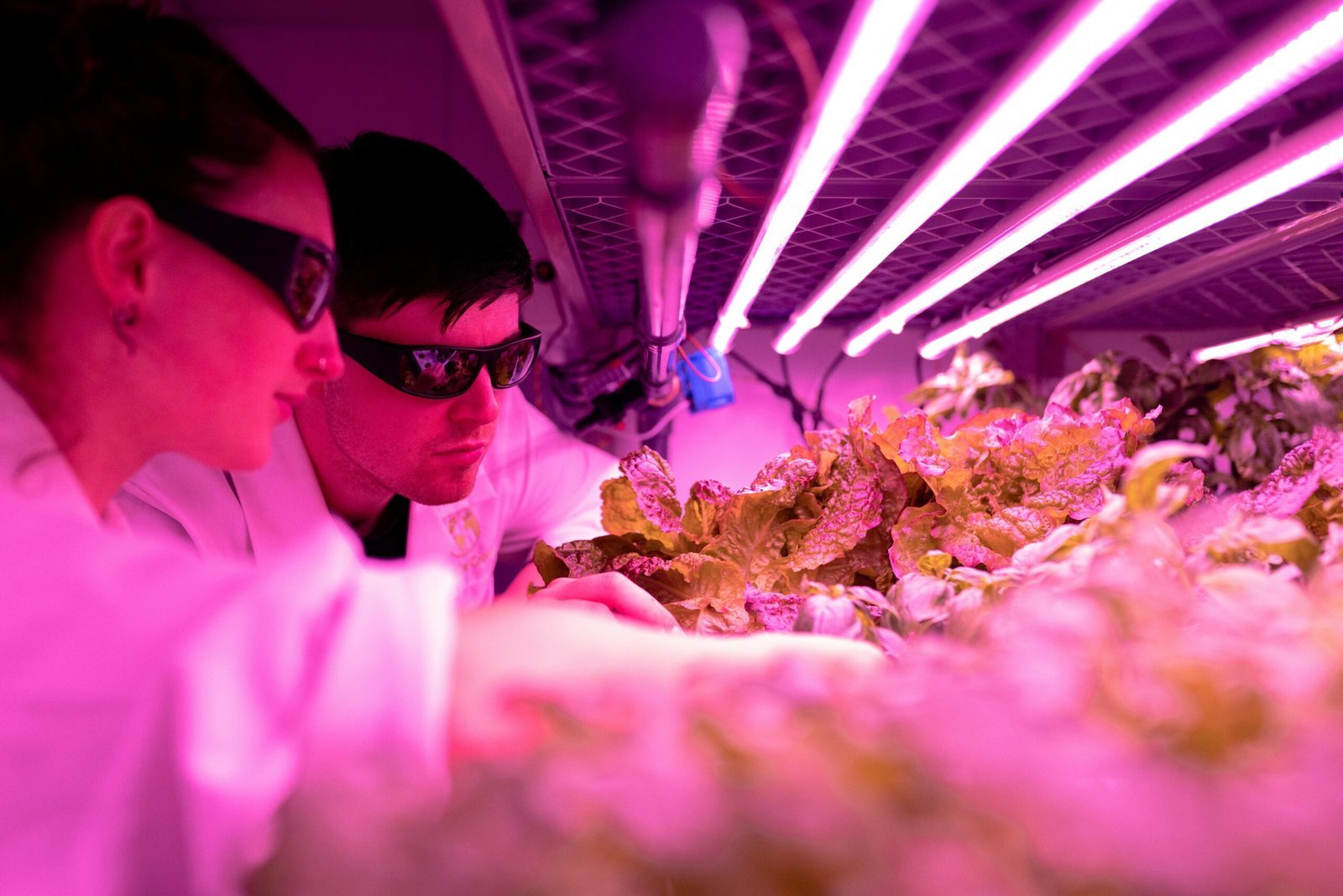
Introduction to Genetic Engineering
Genetic engineering, also known as genetic modification, involves the direct manipulation of an organism’s genes using biotechnology. This groundbreaking field has enabled scientists to alter the genetic makeup of plants, animals, and even humans to produce desired traits. The basic principles of genetic engineering include techniques such as gene cloning, CRISPR-Cas9, and recombinant DNA technology, which facilitate the introduction, removal, or editing of specific genetic sequences.
The history of genetic engineering dates back to the early 1970s when scientists first successfully inserted foreign DNA into bacteria, marking the advent of recombinant DNA technology. This breakthrough paved the way for numerous advancements, such as the development of genetically modified organisms (GMOs) which have significantly impacted agriculture and medicine. For instance, GMOs have been engineered to exhibit resistance to pests, herbicides, and diseases, thereby increasing crop yields and reducing the need for chemical treatments.
Currently, genetic engineering applications are vast and varied. In the medical field, it has been instrumental in the production of insulin, human growth hormones, and other pharmaceutical drugs. Gene therapy, another application, aims to treat or prevent diseases by correcting defective genes. Additionally, CRISPR-Cas9 technology has garnered attention for its potential to edit specific genes with unprecedented precision, offering hope for curing genetic disorders.
However, the advancement of genetic engineering has not been without controversy. Ethical concerns arise from the potential impact on natural ecosystems, the unforeseen long-term effects of genetic modifications, and the moral implications of altering human genes. These debates often highlight fears of biotechnological misuse, such as the creation of so-called “designer babies” or new forms of biological warfare. The complex interplay between scientific innovation and ethical considerations continues to shape the discourse surrounding genetic engineering, making it a pivotal topic of our time.
Genetic engineering is a field that raises numerous moral and ethical dilemmas, which continue to spark debate among scholars, ethicists, and the general public. One of the primary concerns is the notion of “playing God.” Critics argue that altering human DNA fundamentally oversteps the natural boundaries set by nature or a higher power, posing profound ethical questions about human intervention in life’s building blocks. This concern is often rooted in religious and philosophical beliefs, which emphasize the sanctity and inviolability of natural creation.
Another significant ethical dilemma revolves around the potential to alter human DNA at a fundamental level. With advancements in technologies like CRISPR-Cas9, it is now possible to edit genes with unprecedented precision. While this holds incredible promise for eliminating genetic disorders and enhancing human capabilities, it also raises questions about the long-term implications for humanity. For instance, what will be the societal impacts if genetic enhancement becomes widespread? Will it lead to a new form of inequality where those who can afford genetic modifications gain unfair advantages over those who cannot?
The implications for future generations add another layer of complexity to the ethical debate. Genetic modifications made today could be passed down to future generations, carrying unforeseen consequences. The risk of unintended mutations and the ethical responsibility of making irreversible changes to the human gene pool without the consent of those affected are critical concerns. This dilemma invokes a precautionary principle, urging us to consider whether the potential benefits outweigh the risks.
Diverse perspectives, including religious and philosophical viewpoints, contribute to this ongoing debate. Religious organizations often view genetic engineering through the lens of moral teachings, cautioning against actions that may tamper with creation. Philosophical perspectives, on the other hand, explore the ethical boundaries from angles such as existential risks and human enhancement. Together, these viewpoints underscore the complexity of determining ethical boundaries in genetic engineering, highlighting the need for a multifaceted approach to address these profound concerns.
Regulatory and Legal Frameworks
The governance of genetic engineering varies significantly across different countries and encompasses a complex tapestry of regulations and legal frameworks. These policies aim to address the ethical challenges posed by rapid advancements in genetic technology. Several nations have established comprehensive legal frameworks to regulate genetic modification, ranging from stringent restrictions to more permissive measures.
For instance, the United States operates under the Coordinated Framework for the Regulation of Biotechnology, relying on existing laws managed by three key agencies: the Food and Drug Administration (FDA), the United States Department of Agriculture (USDA), and the Environmental Protection Agency (EPA). This framework is decentralized, reflecting the complementary expertise of each agency. However, critics argue that it can lead to regulatory inefficiencies and gaps.
In contrast, the European Union (EU) maintains one of the most rigorous regulatory landscapes. The EU’s policies, encapsulated in directives such as the GMO Directive 2001/18/EC, demand extensive risk assessments and labeling requirements for genetically modified organisms (GMOs). These measures are designed to safeguard public health and the environment, yet they also lead to prolonged approval processes, potentially stifling innovation.
Beyond national policies, international regulations play a critical role. The Cartagena Protocol on Biosafety, under the Convention on Biological Diversity, is a prime example. This international agreement focuses on ensuring the safe transfer and use of living modified organisms (LMOs) resulting from biotechnology, providing a structured approach to assessing potential risks.
Despite these efforts, there are evident gaps and areas that require refinement. One pressing issue is the inconsistency in global standards; varying levels of regulatory stringency can lead to trade disparities and a lack of uniformity in the ethical management of genetic engineering. Additionally, many regulatory frameworks struggle to keep pace with the rapid advancements in genetic technology, necessitating continuous updates and adaptability.
To effectively manage the ethical implications of genetic engineering, it is imperative that both national and international bodies engage in ongoing dialogue to harmonize regulations and address emerging challenges. Enhancing collaboration and sharing best practices can help bridge existing gaps, fostering a more coherent and ethical regulatory landscape.
Future Prospects and Ethical Safeguards
The field of genetic engineering is poised for unprecedented advancements, promising breakthroughs in medicine, agriculture, and environmental conservation. Emerging technologies such as CRISPR-Cas9 and gene drives are at the forefront, offering precise and efficient genetic modifications. These innovations have the potential to eradicate genetic disorders, enhance crop resilience, and even combat climate change by engineering organisms with new traits. However, the rapid evolution of genetic engineering necessitates stringent ethical safeguards to ensure responsible usage.
Ethicists and scientists have proposed various frameworks to govern genetic engineering’s ethical landscape. Central to these proposals is the principle of human dignity, which demands respect for individual rights and the integrity of the human genome. For instance, the concept of informed consent is paramount, ensuring that individuals are fully aware and agreeable to any genetic modifications. Moreover, there is a growing emphasis on the potential risks and unintended consequences that could arise from genetic alterations, necessitating comprehensive risk-benefit analyses and long-term monitoring of engineered organisms.
Another crucial consideration is the equitable distribution of genetic engineering’s benefits. Ethical discourse underscores the importance of preventing socio-economic disparities that could result from access to genetic enhancements. Recommendations include implementing policies that ensure fair access to genetic therapies and agricultural innovations, particularly in underprivileged regions. Additionally, ethicists advocate for global cooperation and transparent communication among nations to address ethical dilemmas collectively and formulate universally accepted regulations.
Genetic researchers are also exploring methods to enhance ethical oversight in genetic engineering projects. Proposals include establishing independent ethics committees to review genetic research and creating international regulatory bodies to standardize ethical guidelines across borders. Furthermore, public engagement is crucial; fostering a dialogue between scientists, ethicists, policymakers, and the general public can facilitate an inclusive approach to ethical decision-making.










